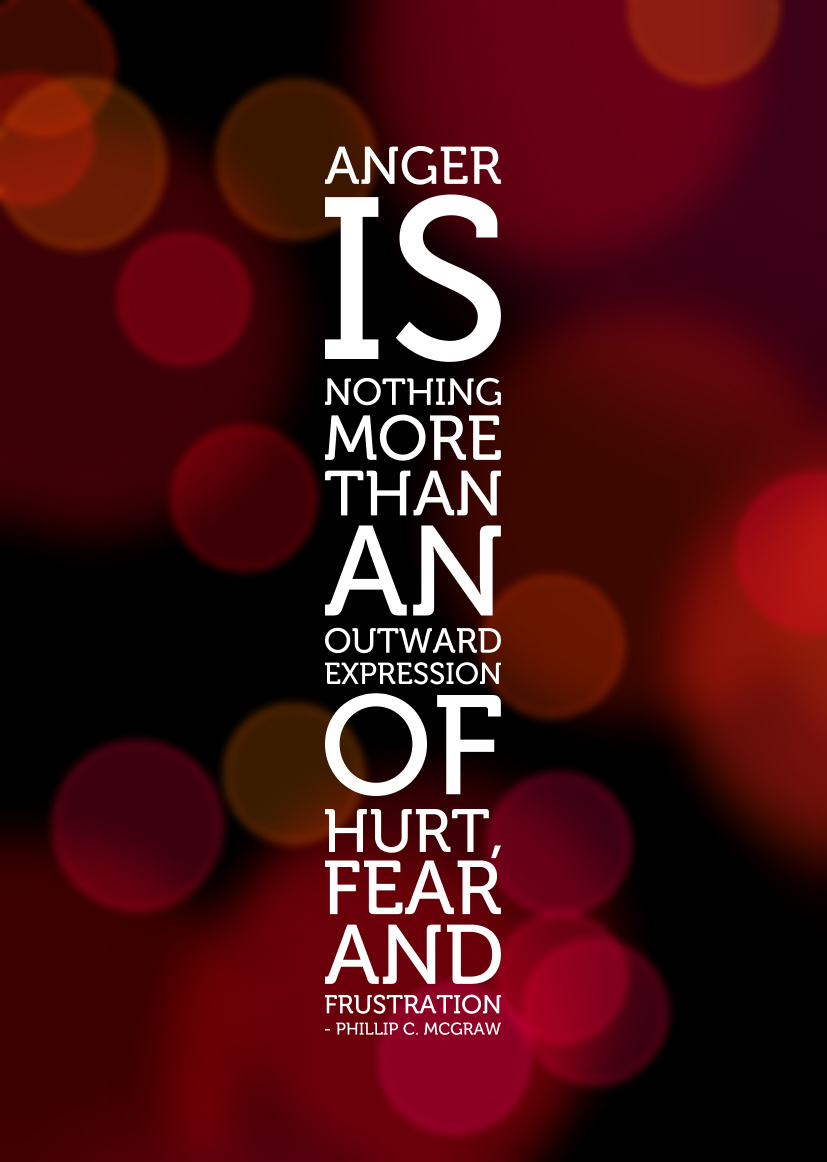The Difference Between Anger & Hurt

More and more it seems like we are trained by society to think that it is not alright to express our pain. But our anger…well that’s another story.
When you are hurt, generally your reaction is anger. You want to “get back” at the person that hurt you. Make them feel the pain that you feel. Or worse, you bury your pain and don’t allow yourself to feel anything. Somehow these responses have become the norm in our world. Concealing your emotions and unleashing your pain on others verbally and physically seems more acceptable than showing your hurt. Expressing your feelings makes you weak. By saying, “You hurt me,” “I forgive you,” or “I’m sorry,” you are surrendering your personal power.
This is true especially with our boys. From the time they are able to talk, most boys are told to “suck it up” and that “boys don’t cry” and they should “man up.” When you use those terms, you are teaching them how to bury pain. It’s no wonder just about every woman I know—including me— has been in a relationship with a man who wouldn’t “open up” to her or say what he was feeling. But after spending years learning how to hide his emotions, what should we expect? And on the rare occasion that a man does express his hurt, he is called a punk, a girl, soft, and even gay. Take NLF player Jonathan Martin. He has been called all of the above and more since filing a complaint against team member Richie Incognito for player misconduct. Now had Martin chose instead to respond by beating the crap out of Incognito—that would make more sense. In the eyes of most, that’s the way a real man would have handled it.
But it’s actually the opposite. When you speak your truth, you become empowered. You allow your feelings to be validated. You show your strength and your confidence. You teach others how to treat you.
Recently, when doing homework with my daughter, I was speaking very sternly (in my girl, I’m not playing with you voice) about her taking time with her handwriting. When we were finished, she asked to speak to me privately. She proceeded to tell me that she didn’t like the way that I spoke to her about the homework. It hurt her feelings when I use that tone of voice with her. Suddenly, I had an Oprah moment. “So what I’m hearing is that you prefer that I use my normal voice when we are doing your homework?” “Well…yes, but I don’t want you to use that other voice at all.” “I can’t promise that I won’t use that voice again. That’s the voice I use so that you know I mean business and you don’t get to tell me when I can use it. But I will say that I will be very mindful of it from now on. And I won’t use it when we are doing homework,” I said very calmly. “Okay,” she agreed.
After our conversation, I had a flashback to when I was her age and what would have happened if I dared say any of what she had just said to my mother. (I grew up in the “children are meant to be seen and not heard” era of parenting.) No doubt I would have been picking myself up off the floor after telling my mother I didn’t like the way she spoke to me. Those were the kinds of feelings that you had better keep to yourself. Then I smiled. I was proud of the good job she had done expressing her feelings. And I was proud of how well I had expressed mine.
Yes, we could all stand to “toughen up” from time to time in certain situations. But remember that can include standing up for yourself by speaking up for yourself. Don’t let the fear of judgment or shame hinder you from letting others know how you really feel. Own the power that is your voice. And encourage your children to do the same.
Follow me on twitter @herlifeinspired.

